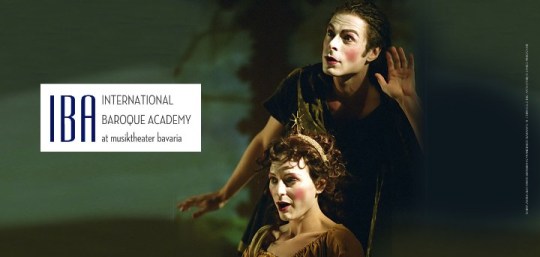Ks. Christopher Robson
Countertenor
Teaching News
INTERNATIONAL BAROQUE ACADEMY
at Musik Theater Bavaria
Christopher will be a member of the faculty at this year's IBA course in Oberaudorf, Bavaria. The course runs from July 28th to August 11th, 2019
For more information visit the IBA website
https://musictheaterbavaria.org/internationalbaroqueacademy.php

"GETTING A HANDLE ON HANDEL!"
28th, 29th & 30th October 2013 at the Theaterakademie August Everding, Prinzregententheater, Munich. Germany
A three day workshop exploring the dramatic and sty;istic possibilities of some of Handel’s Opera and Oratorio scenes & arias
To the modern musical ear and indeed to the modern music-listening audience, Handel is certainly no longer a stranger. The Early and Baroque Music revival is long established; the Oratorios and, in more recent years, the Operas by George Frederick Handel have become not only more popular, but are now even part of a staple diet in the concert halls and stages of the modern music lover’s world.
Yet for many singers - and sadly many singing teachers, too - Handel’s music is still often considered to be something that takes second or third place to the more accepted conventional concert & operatic repertoire of Mozart, Rossini, Donizetti, Verdi, Puccini, Strauss, even Schubert & Schumann, etc. The idea of singing Handel often seems to imply a professional step backwards in the minds of many young artists, as if it is not particularly relevant to their modern artistic development and personal artistic expression.
That way of thinking is of course plainly misguided. Handel’s music, particularly his music for voices, is actually a wonderful step forward in the pure Belcanto tradition that started with Caccini, Monteverdi and Cavalli, culminating in the great romantic Belcanto tradition of the 19th & early 20th centuries. Handel’s study & love of Italian music of the late 17th and early 18th centuries is plainly evident; and it is clear that he, more than any of his contemporaries, developed the art of Dramma per Musica to such a sophisticated extent that it laid the foundations for the operas of Mozart and the oratorios of Mendelssohn (to name just two of the many later composers who greatly admired Handel’s music).
Stylistically, there are many things to explore in Handel’s vocal music. The ground rules for singing Baroque music in general are not so hard to grasp. Singers are often needlessly frightened at the prospect of improvised decorations & cadenzas, unsure how much they should decorate a line, whether to use less or no vibrato, or ambivalent about where and when to insert appoggiaturas, etc. There are also questions of phrasing, articulation and line that need to be taken into account; and of course, all the frustrations and dramatic questions thrown up by that most dreaded of musical forms, the great Da Capo Aria!
Interestingly enough, when singers begins to understand where Handel is coming from stylistically and where he is going as a musical dramatist, then suddenly Gluck, Haydn, Mozart and their successors all begin to sit in a new, perhaps better, perspective.
Many singers, musicians and music lovers also forget that Handel’s Oratorios are rooted in his theatrical & operatic expression and tradition, (unlike the Germanic oratorio tradition of Bach or Telemann). The switch to writing oratorio was one of financial necessity when Handel’s operatic entrepreneurship collapsed, forcing him to find other outlets for his dramatic expression. Unsurprisingly, many of Handel’s religious and secular oratorios readily lend themselves to staging; some are by their nature more difficult to stage than others, as allegory and commentary begin to replace genuine stage action. But what is common to all Handel oratorios (as well as the operas) is the fact that the story telling is full of dramatic expression; whether it is expression of love, lust, greed, fear, grief, religious fervour or joy, they are full of real life and humanity. It is for this very reason that I am enthused to explore the arias & scenes of the oratorio repertoire as well as those of the operas.
Although the fashions of his time may still dictate certain elements of musical performance and dramatic expression, it is true to say that some understanding of Handel’s style helps to enable performers to adapt their modern sensibilities (their 21st century thinking and understanding of the world we live in today) in such a way as to find a true personal expression of Handel’s writing. Indeed such an approach also works the other way round, bringing Handel into our own time dramatically, intellectually, philosophically, musically. Without the input & exploration of a modern performer’s personal expressive skills, sensibilities and experience, music in whatever form and from whatever period has little or no chance of coming to life. The modern world that we as artists live in now (and all that implies) cannot and must not be denied, especially when it comes to trying to understand the past; this applies equally to the exploration of all music and the world it comes from.
Ultimately our three day course will try to give the singers a chance to explore not only the niceties and rigours of baroque arias & scenes in a sense of “Handelian Style”, but also to grip the handle and push open the door to the world and rewards of Handel’s musical dramatic expression. Despite having roots going back 400 years, Handel’s vocal music remains somehow timeless and, without any doubt, renewably contemporary.